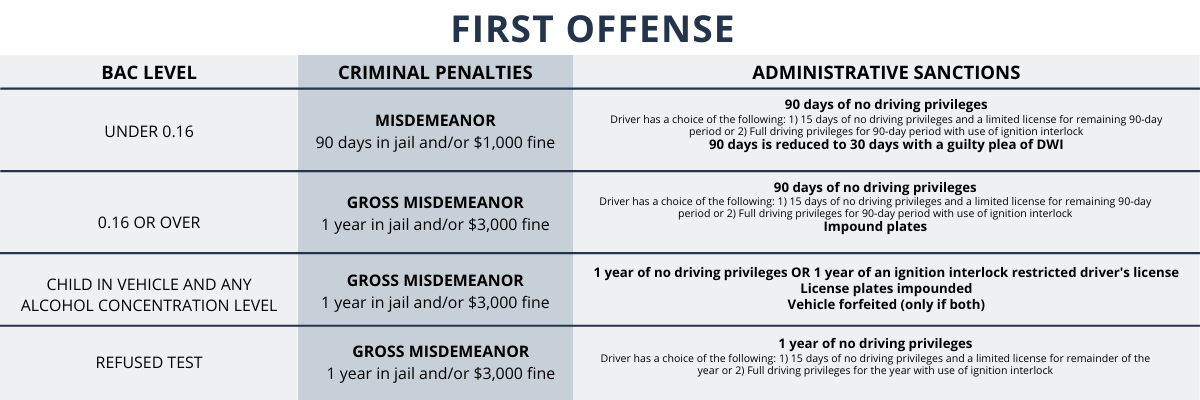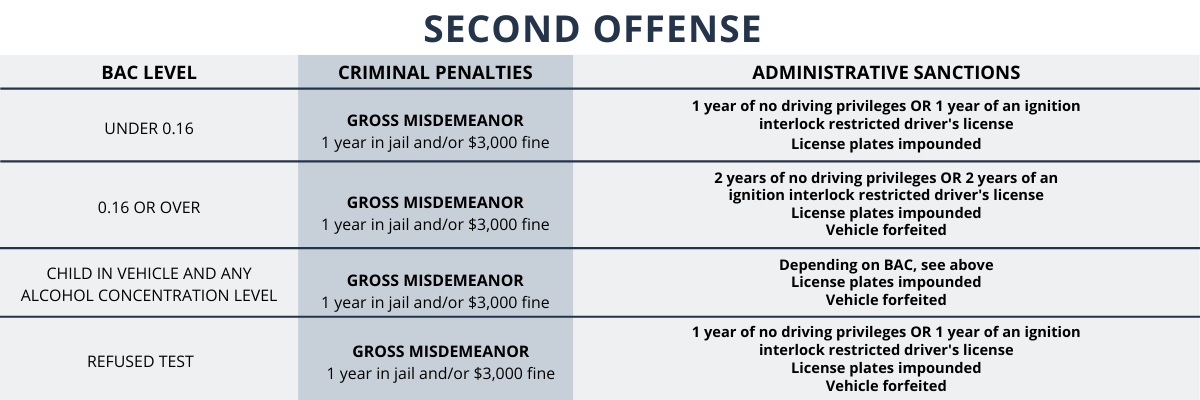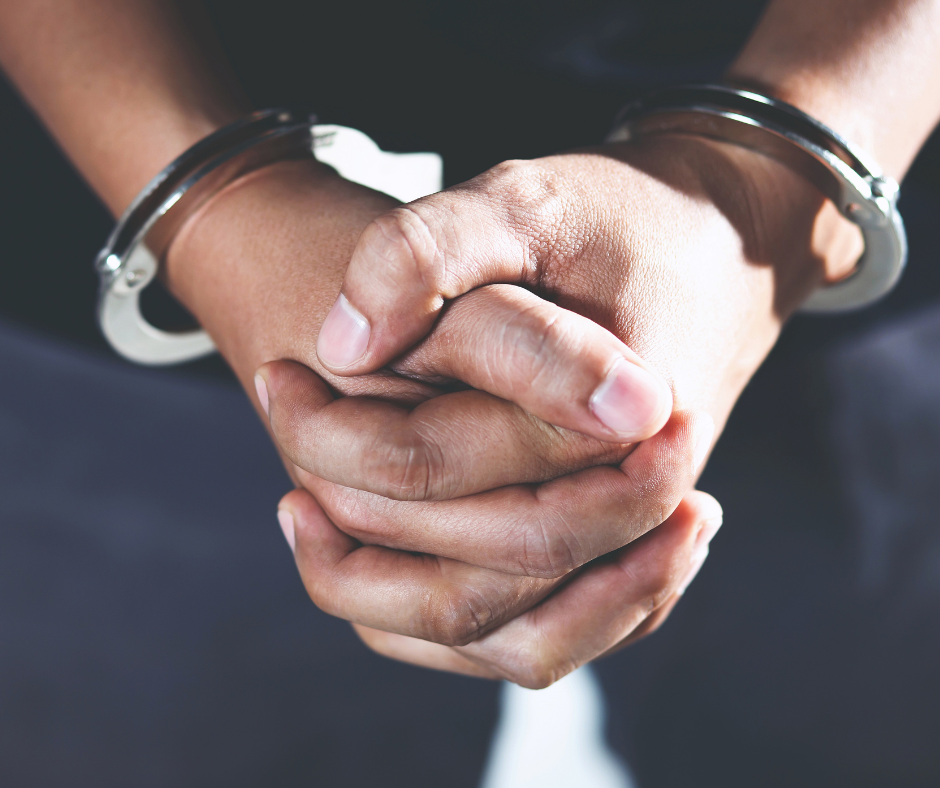Underage Drunk Driving in Minnesota: Know the Laws and Consequences
Drinking alcohol under the age of 21 is illegal and can have major consequences in Minnesota. Minnesota law criminalizes and punishes both minors and adults involved in a minor’s use of alcohol.
Minnesota Underage Consumption Law
The Underage Drinking, or Minor Consumption Law, prohibits those under 21 from:
- consuming alcohol without parental supervision or permission,
- purchasing or attempting to purchase alcohol,
- possessing alcohol with the intent to consume,
- entering a bar or liquor store with the intent to buy, or
- misrepresenting age to purchase alcohol
This violation is a misdemeanor offense carrying a penalty of up to 90 days in jail and a maximum $1,000 fine.
Not-a-Drop Law
Minnesota has a zero-tolerance law for underage drinking and driving. Under the “Not-a-Drop” law, it is illegal for a person under the age of 21 to drive a vehicle with any amount of alcohol in the body.
A violation of this law will result in a misdemeanor, which carries a penalty of up to 90 days in jail and a maximum $1,000 fine.
If the offender is under the age of 18, the offense is prosecuted in juvenile rather than adult court and is considered a “major traffic offense”. So long as the conduct does not violate the DWI law, it cannot be used as an enhancing factor for any subsequent DWI violation.
A first-time offender’s license is suspended for 30 days. The license suspension increases to 180 days for a second offense. For unlicensed offenders, the violation places future restrictions on the offender’s ability to get an instruction permit, provisional license, or driver’s license.
Statistic: 5% of Minnesota DWIs are issued to drivers less than 21 years of age.
Open Bottle Law
Under Minnesota’s open bottle law, it is a crime to consume alcohol or possess an open container of alcohol in a vehicle on a public road, even if the driver isn’t under the influence. It is not a violation to have an open bottle in a trunk or other area not occupied by passengers. The open bottle law does not prohibit possession or consumption of alcoholic beverages by passengers in buses, limousines, motorboats, or pedal pubs.
Violation of this law is a misdemeanor offense, punishable by up to 90 days in jail and up to $1,000 in fines.
Driving While Impaired
What is a DWI?
In Minnesota, a DWI is defined as operating a motor vehicle while:
- under the influence of alcohol or drugs
- knowingly under the influence of a hazardous substance that affects the body and substantially impairs driving abilities
- having a blood alcohol concentration (BAC) of .08% or greater, or
- having any amount of a Schedule I or II drug, except marijuana, in the body.
Upon a lawful DWI arrest, it is a crime to refuse a breathalyzer test at the police station in Minnesota. This offense is referred to as an implied consent or test refusal crime.
Minnesota’s DWI prohibition applies equally to drivers of all ages. Unlike the “Not-a-Drop” law, underage DWI offenders that are at least 16 years old are prosecuted in adult court and are subject to the same penalties as adult DWI offenders. Offenders who are 15 or younger are prosecuted in juvenile court as “major highway traffic offenders.”
DWI Penalties
Upon being charged with a DWI, an offender faces two types of penalties: administrative and criminal. The severity of these penalties increases when “aggravating factors” are involved; such as:
- a record of prior DWI offenses in the past ten years
- a BAC of .16% or more, or
- the presence of a child under the age of 16 in the vehicle.
The chart below applies to adults and juveniles, except if the person convicted of violating section 169A.20 (DWI) is under the age of 21 years at the time of the violation. The commissioner shall revoke the offender's driver's license or operating privileges for a minimum of 180 days or for the appropriate period of time under subdivision 1, clauses (1) to (6), for the offense committed, whichever is the longer period.




All alcohol-related loss of driving privileges require a $680 reinstatement fee, DWI knowledge test, driver’s license application with fees, and chemical health assessment.
Hire A DWI Lawyer
Don't let a DUI ruin your future. A criminal defense lawyer can help you navigate the legal system and develop an effective strategy for defending your case. Request a free consultation and we’ll be in touch!
Other articles and resources:
- An Overview of Minnesota’s DWI Laws (from the Minnesota House of Representatives)
- What Happens After Your DWI Arrest in MInnesota

